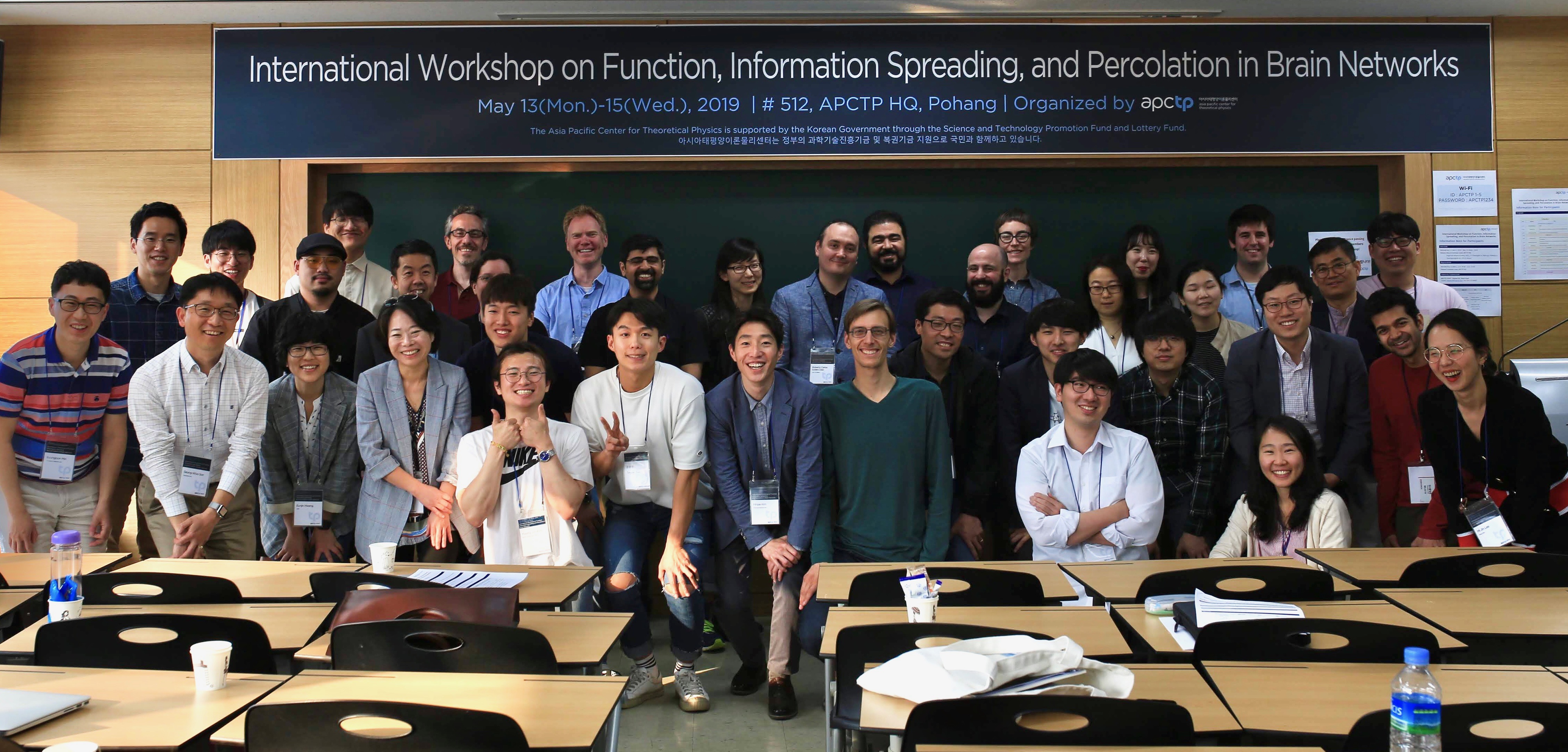|
|||
Venue:
Date: May 13 (Mon), 2019 ~ May 15 (Wed), 2019 * Invited Speakers (confirmed)
Yong-Yeol Ahn (Indiana University Bloomington, USA) Andrea Benucci (RIKEN, Japan) Signe Bray (University of Calgary, Canada) Young Sul Cho (Chonbuk National University, Korea) Ji Hyun Choi (KIST, Korea) Claudia Gomes da Rocha (University of Calgary, Canada) Jaeseung Jeong (KAIST, Korea) Sung Chan Jun (GIST, Korea) Heetae Kim (Universidad de Talca, Chile) Seunghwan Kim (POSTECH, Korea) Jeehyun Kwag (Korea University, Korea) Sang Hoon Lee (Gyeongnam National University of Science and Technology, Korea) Sang Wan Lee (KAIST, Korea) Sol Lim (University of Cambridge, UK) Byungjoon Min (Chungbuk National University, Korea) Majid Mohajerani (University of Lethbridge, Canada) Wilten Nicola (Imperial College, UK) Roberto Carlos Sotero Diaz (University of Calgary, Canada) Choong-Wan Woo (IBS Center for Neuroscience Imaging Research, Korea) Overview Understanding the relationship between structure, dynamics, and function in the brain is a crucial step towards innovative solutions for brain-related diseases. This includes inferring precise cause-effect relationships from observations. In the case of the brain, one can make multivariate recordings of its activity on many different levels, ranging from single neurons to extended brain regions. Several analysis techniques from information theory, statistics, and related disciplines exist to estimate causal influences, interactions and connectivity from general multivariate recordings under certain assumptions. The connectivity is often of particular importance since it allows one to describe the dynamics of a given system in the modern language of complex network theory in statistical physics, and to tackle questions related to structure and functionality. Especially recently developed multiplex network approaches and their universality bring us a new opportunity to understand our brain in multiple levels simultaneously. In order to bring recent developments in complex network researches into neuroscience and to initiate international collaborations between complexity science and neuroscience by bridging the gap and increasing communication between these fields, this workshop aims to bring together a diverse group of world-leading experts of various backgrounds. The goal of the workshop is to review the state-of-the-art and especially initiate new cross-disciplinary collaborative. We strongly believe that such an event and the arising cross-fertilization between different fields will help to improve our fundamental understanding of identifying causality and information transfer from data as well as capturing and characterizing them in the form of dynamical multiplex networks. This will allow new physical insights into the specific complex systems the data describe such as nerve cells, neuronal cultures, and the brain as a whole. Organizers
Joern Davidsen (University of Calgary, Canada) Seung-Woo Son (Hanyang University, Korea) Javier Orlandi (RIKEN, Japan) Contact For additional information on logistics, please contact Dr. Seung-Woo Son. (e-mail: sonswoo@hanyang.ac.kr) Sponsors |
|||
